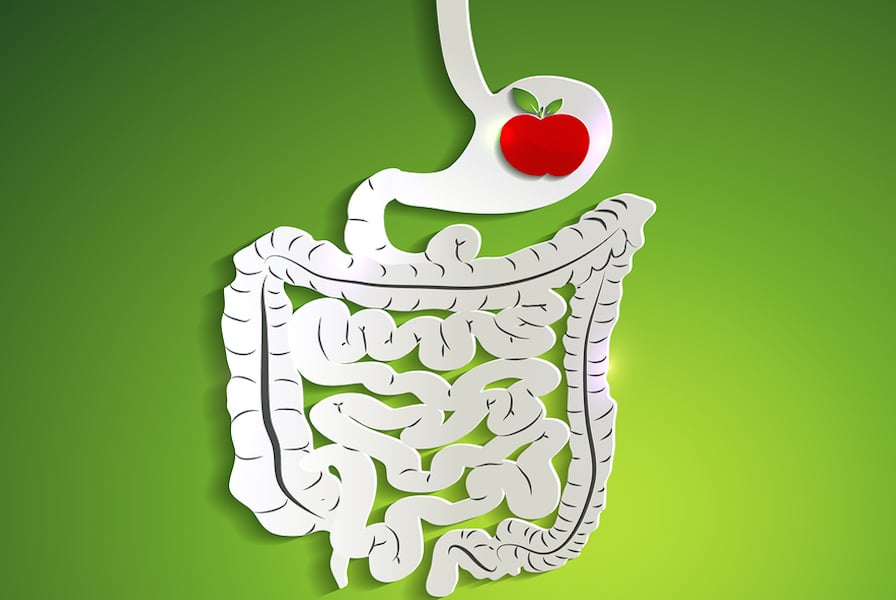7 ways to reset your gut
Nearly two-thirds of us suffer from persistent gut problems, but many could be fixed with a few simple tweaks – just follow this seven-step plan
The bacteria in your gut outnumber the cells that make up your body by a staggering 10 to one, so it’s worth looking after them. Not only is our gut responsible for processing food, ensuring we make the most of essential nutrients, vitamins and minerals, but its health affects almost every aspect of our mind and body.
What causes gut problems?
Poor diet, chronic stress, anxiety and depression can all throw the gut off-balance. ‘We now know that there is a direct connection between the gut and our brain, and with a little looking after, it will definitely look after you,’ says Jo Travers, nutritionist for Love Your Gut, a national initiative promoting good gut health.
When it comes to diet, it’s not just a case of quality. Overeating can put a strain on the gut, and carrying excess weight puts pressure on the stomach. Eating on-the-go can also upset the balance.
What are the symptoms?
Dysbiosis – an imbalance of gut bacteria – can present in a number of ways. ‘Heartburn, is a common one,’ says consultant gastroenterologist Dr Anton Emmanuel. ‘The feeling of food repeating on yourself is another, and abdominal pain is a feature of an imbalance, because the gut is having to contract and relax more than it wants to.’ An alteration in bowel movements is also a sign; other symptoms include bad breath, diarrhea, difficulty urinating, bloating, fatigue, and having trouble concentrating. If you recognise these, try our seven-step gut reset plan:
1 Recognise triggers ‘Often we can’t change the stressors in our life,’ says Dr Emmanuel. ‘But what you can do is be aware of those which trigger symptoms, and then not compound things by panicking or doing the wrong thing. Keeping a symptom diary is a good way to identify and recognise what your individual triggers are.’
2 Rethink your diet ‘To keep gut bacteria varied and thriving, you need to feed them well,’ says Travers. ‘One study found that people who eat 30 or more different plant foods each week are likely to have a much more varied gut microbiome than those who eat 10 or fewer.’
3 Eat mindfully ‘In the modern word, we tend to eat at speed,’ says Dr Emmanuel. ‘That means we don’t necessarily begin the digestive process properly. Sit down, take your time, savour your food, and wait at least 10 minutes afterwards so that you have a chance to digest.’
4 Don’t fear healthy fats Omega 3-rich flaxseeds are a great source of essential fatty acids. ‘Flaxseeds are high in both soluble and insoluble fibre, so great for preventing constipation,’ says Travers. ‘Insoluble fibre absorbs water, making the stools softer, and soluble fibre forms a gel with water, making everything move more easily.’
5 Medicate ‘If you’ve got symptoms of heartburn or food repeating, over-the-counter antacids are a good idea,’ says Dr Emmanuel. ‘Some find liquorice helpful, too. If you find something that works for you, use it. Keeping symptoms at bay is important because once they start, they become self-perpetuating – it’s like a fire that keeps burning.’
6 Understand your biotics Prebiotics provide food for beneficial bacteria, probiotics contain live bacteria. ‘Prebiotics are fibres, often found in plant foods, that we can’t digest but the bacteria in our gut can,’ says Travers. ‘Our gut benefits in several ways, such as reducing inflammation, having an anti-cancer effect and influencing the absorption of nutrients.’ Probiotics will help further populate your gut, and you can get both from your diet. ‘Avoid unnecessary antibiotics – they kill all the bacteria in your gut, including the good ones,’ adds Travers.
7 Listen to your bowel ‘When your bowel wants to work, let it go,’ says Dr Emmanuel. ‘Some of us are too busy to use the loo and we ignore the urge, or may try to force the bowel to move when it doesn’t want to. This causes poor gut transit, screws up the balance and sets up bad patterns.’
For more information on gut health and products to support it, visit hollandandbarrett.com. Find more great health content in healthy magazine and at healthy-magazine.co.uk
Words Hattie Parish
Latest posts by healthy Magazine (see all)
- The five best easy moves to stay fit at any age - June 28, 2021
- How to have glowing skin in your 50s - June 1, 2021
- Should you be eating more plant-based? - May 5, 2021
- Four things that could be causing your thinning hair - March 29, 2021
- What type of headache do you have? - March 1, 2021





















